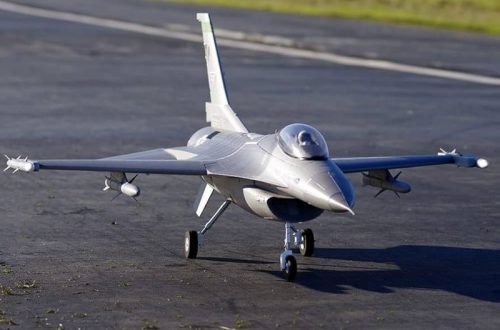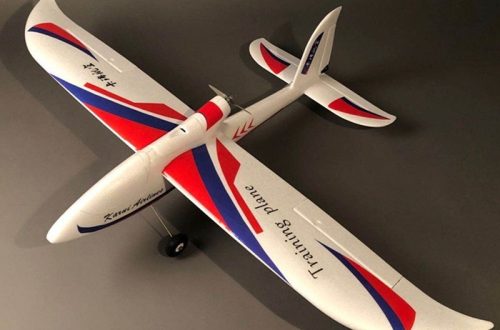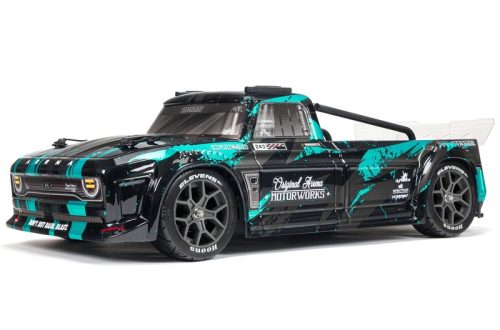Introduction
The RC car brushless motor has transformed the way enthusiasts approach their hobbies. With the increasing demand for high efficiency and performance, these motors are quickly becoming the preferred choice. They offer notable advantages over traditional brushed motors. As technology advances, so does the capability of RC cars. Understanding brushless motors is no longer a luxury; it’s a necessity for anyone serious about their hobby.
In this article, we will delve into what a brushless motor is, its benefits, how to choose the right one, and maintain it. Our aim is to arm you with comprehensive information, helping you elevate your RC car experience.
What is an RC Car Brushless Motor?
An RC car brushless motor operates without brushes that are typical in brushed motors. This eliminates friction and wear, resulting in enhanced performance. Brushless motors feature three main components: the rotor, stator, and electronic speed controller (ESC). The rotor contains permanent magnets, while the stator is made up of coils of wire. The ESC orchestrates the flow of electricity, energizing the coils and causing the rotor to spin.
Comparison: Brushless vs. Brushed Motors
When comparing brushless to brushed motors, several key differences emerge. Brushed motors usually have a shorter lifespan due to wear on the brushes. In contrast, brushless motors last considerably longer. Furthermore, brushless motors exhibit higher efficiency. They convert more battery power into usable energy, thus enhancing runtime. Additionally, brushless motors generate less heat, making them suitable for high-performance applications. The quiet operation of brushless motors is another notable advantage, as it creates a more enjoyable experience during races or casual runs.

Benefits of Brushless Motors for RC Cars
The advantages of brushless motors are substantial, making them a worthy investment for any RC enthusiast.
1. Greater Efficiency
First and foremost, brushless motors offer greater efficiency. They can convert a significant amount of electrical energy into mechanical power. This means longer run times and more speed, which is crucial for competitive racing.
2. Longer Lifespan
Another significant advantage is the lifespan of brushless motors. They have fewer moving parts. Consequently, they are less susceptible to wear and tear. Many users report that brushless motors last several times longer than their brushed counterparts.
3. Higher Power-to-Weight Ratio
The power-to-weight ratio is another compelling reason to choose brushless motors. They provide more power without adding much weight, allowing for faster acceleration and higher speeds. This feature is particularly beneficial for racers looking to gain an edge over competitors.
4. Better Heat Dissipation
Brushless motors also have improved heat dissipation properties. This leads to better thermal management and performance stability. Keeping heat levels down can extend the life of not just the motor, but the entire RC vehicle.
5. Quiet Operation
Finally, the quiet operation of brushless motors enhances the overall driving experience. This can be particularly handy during practice runs or in competitive settings where noise levels can be a concern.
How to Choose the Right Brushless Motor
Choosing the suitable RC car brushless motor can be a daunting task. However, considering several key factors will simplify your decision.
1. Size and Weight
First, consider the size and weight of the motor. Make sure it fits well within your RC car’s chassis. A heavy motor may adversely affect performance, making it crucial to find a suitable match.
2. KV Rating (RPM per Volt)
Next, examine the KV rating, which stands for RPM per volt. Higher KV ratings translate to greater speed. However, if you opt for a motor with a high KV rating, ensure it matches with the right gearing for your vehicle.
3. Compatibility with ESC
Another factor to consider is compatibility with your Electronic Speed Controller (ESC). Not all ESCs are suitable for all brushless motors. Prior to purchasing, verify that your ESC can handle the specific motor specifications.
4. Application-Specific Needs
Lastly, consider the application-specific needs of your vehicle. Do you plan to use the RC car for off-road racing or high-speed circuits? Different applications might require different motor specifications.

Popular RC Car Brushless Motor
When it comes to choosing RC car brushless motors, several options stand out in the market. Below are some popular choices that cater to various needs.
1. Hobbywing Xerun 4268
This robust motor offers impressive performance for off-road racing. Known for its high efficiency and smooth throttle control, it’s a favorite among serious racers. The price range is moderate, making it accessible for most hobbyists.
2. Castle Creations Mamba Monster X 8S
This powerful motor is perfect for those who want high speed and extreme power. It features excellent thermal management properties, allowing it to run cool even under stress. Its price is on the higher end, but the performance justifies the investment.
3. Traxxas Velineon 3500
If you’re a beginner, this motor is well worth considering. It provides a good balance of speed and longevity, making it perfect for casual users. The price is relatively affordable, thus offering value for money without compromising on quality.
4. Tekin RX8 Gen3
Designed for competitive racing, the Tekin RX8 Gen3 excels in performance. Its programmable features allow you to tailor the power delivery according to your needs. While it comes with a premium price tag, the benefits are substantial for serious racers.
Maintenance Tips for Brushless Motors
To ensure your RC car brushless motor performs optimally, regular maintenance is essential.
1. Regular Cleaning
Regular cleaning is crucial for longevity. Dust and dirt can accumulate in various parts, obstructing functionality. Use a soft brush to remove debris without damaging sensitive components.
2. Checking Connections
Always check the connections between the motor and the ESC. Loose or corroded connections can affect performance and may even cause motor failure. Make it a habit to inspect them before and after each use.
3. Monitoring Heat Levels
Keep an eye on heat levels during operation. While brushless motors generally run cooler than brushed ones, excessive heat can still be harmful. If you notice overheating, consider increasing airflow or reducing the load.
4. Lubrication and Storage Tips
Lubricating moving parts can prolong motor life. Additionally, store the motor in a cool, dry space. Avoid direct sunlight and moisture, as these can negatively impact performance.

Upgrading to Brushless Motors
Transitioning from a brushed to a brushless motor may seem daunting but it can provide significant benefits.
1. Assess Your Current Setup
Before making the transition, evaluate your current setup. Ensure that your ESC is compatible with a brushless motor. If not, you may need to replace it to complete the upgrade.
2. Tools Required
Some basic tools are needed for the upgrade process, including screwdrivers, soldering iron, and heat shrink tubing. Being well-prepared will make the process smoother.
3. DIY Tips
When replacing the motor, carefully follow the manufacturer’s instructions. Spend time on soldering connections to ensure a secure fit. Once everything is set up, do a preliminary test run. This allows you to confirm that everything works correctly before full use.
Conclusion
In summary, the RC car brushless motor is a powerful upgrade that can significantly improve your RC car’s performance. By understanding the advantages, selecting the right motor, and performing regular maintenance, you’ll enjoy longer, more efficient runs. The benefits far outweigh the initial investment, making this choice worthwhile.
Whether you are a beginner or an experienced racer, brushless motors will enhance your experience on the track. Explore the options available to you, and take your RC car to the next level. With the right brushless motor, you’ll not only improve your vehicle’s performance but also your enjoyment of this thrilling hobby.





